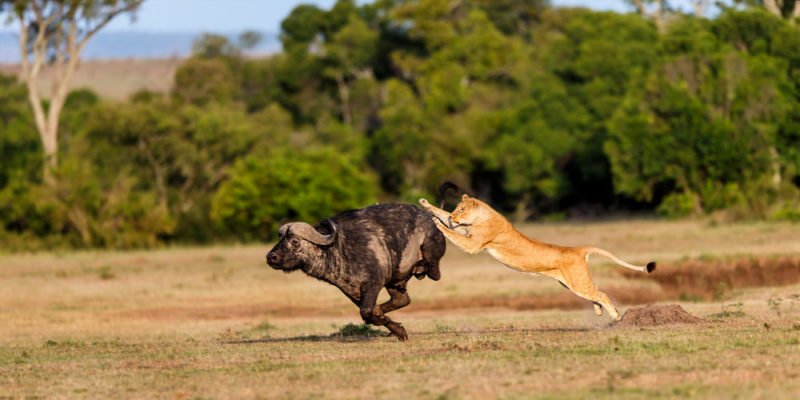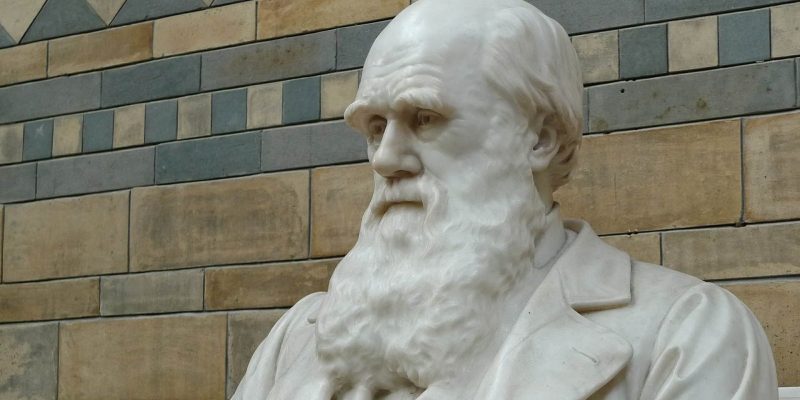We explain what ecology is and what are the applications and objectives of this science. In addition, its characteristics and classification.
What is Ecology?
Ecology is the branch of biology dedicated to the study of the relationships between the various groups of living beings in an ecosystem and even between several ecosystems .
This means attending to both the biological, chemical and statistical conditions of life , as well as the physical, chemical, geographic, climatic and even geological conditions of the environment where said life takes place.
Although environmental preservation and defense of the environment form part of the interests and applications of ecology, it should not be confused with environmental militancy or environmental struggle.
Ecology dates back to the earliest observations of ancient philosophers , whose interests included understanding nature and the forces that govern it, as much as physics, chemistry , and other natural sciences .
Ecology applications

Ecology is one of the branches of biology that has more practical applications. These include conservation and environmentalism , wetland and natural resource management , urban planning , community health, economics , human social interaction, and other basic applied sciences.
Ecologists are a necessary part of the planning of industrial and post-industrial processes, politics , agriculture, ranching, and even extra-planetary scientific exploration.
Origin of the term Ecology
The term ecology arose in 1869 in the work of the Prussian philosopher Ernst Haeckel , and is made up of the Greek words oikos (“house, home”) and logos (“word”, “study”). In this sense, a first definition of ecology would be “the study of homes”.
Objectives of ecology

Ecologists, in their different possible specializations, try to give a scientific explanation to:
- The vital processes of interaction, adaptation and survival in a given environment.
- The flow of matter and energy within the framework of a given biotic community.
- The development and succession of the different ecosystems that exist.
- The diversity, abundance and distribution of living organisms in various environmental media.
Ecology and Environment
Initially, ecology was thought of as a science concerned with the relationships between living beings and their respective environments and with each other, but this definition was expanded to encompass precisely the study of the environment.
This also implies the transport of energy and matter , their transformation by biological communities, and everything that is necessary to understand it in its necessary complexity and vastness.
Flow of energy and matter

One of the common figures of ecology is the trophic chain , that is, the food chain , around which the different existing forms of life are organized.
This chain supposes a balance in the flow of matter and energy between them, which operates in a balanced, equitable and interdependent manner between the species, which are linked to each other in the following way:
- Predators. They feed on other living things , be they herbivores, detritivores or other smaller predators. In doing so, they leave organic material behind to decompose, to which they will eventually add when they die.
- Herbivores. Those living beings that feed on vegetables and plants , and that transmit energy and matter when predated.
- Decomposers. Detritivores or decomposers are those that help break down organic matter and restart the life cycle, allowing waste or residual nutrients to be used and absorbed by the soil, from where they return to plants and vegetables.
Ecological levels

Ecology studies living beings based on their organizational levels or ecological levels, which represents a scale of observation of the processes between living beings. These levels are:
- Organism. The relationships between a specific living being and its environment.
- Population . The relationships between a living being and the community of its species.
- Community . The interactions of a defined population with the populations of other species that surround it.
- Ecosystem. The interactions of a given environment, encompassing the communities and populations in it, as well as the flows of matter and energy in it.
- Biosphere. The full set of all known living things and the global relationships between them.
Ecological factors
There are two kinds of factors that intervene in the processes studied by ecology, and they are:
- Biotics . Those that are derived from the living beings themselves, such as the different relationships of commensalism, parasitism, symbiosis or predation.
- Abiotics . Those typical of external environmental factors of living beings, such as climatic , water , soil factors , etc.
Ecological footprint
One of the most important concepts in recent times of the application of ecology to industrial and urban planning is the ecological footprint. This can be understood as the concrete representation of the environmental impact that an activity, operation, product or work can generate, considering the specific elements of its location, its characteristics and its consequences.
Ecology disciplines

Ecology involves some specific disciplines, such as:
- Aerobiology. A multidisciplinary science that studies the ecological processes of the air and the particles passively transported in it.
- Microbial ecology. The same precepts applied to communities and systems of higher living beings apply to microscopic living beings and molecular biochemistry.
- Urban ecology. Discipline that aspires to understand the development of cities from ecological processes and the interaction between the forms of life that are inherent to it, not only the human.
- Biogeography. This discipline studies the distribution and distribution of living beings throughout the earth, using tools from many other disciplines and sciences.
Celebrity ecologists

A brief list of well-known ecologists and world-renowned works includes names such as Alexander von Humboldt , the famous explorer and naturalist, or even Charles Darwin , who proclaimed the evolutionary theory of the origin of life, or Ernst Haeckel himself. . But also those of the Spanish and pioneer in his country Fernando González Bernáldez, or Ramón Margalef, or the Mexican Miguel Ángel de Quevedo.
The above content published at Collaborative Research Group is for informational and educational purposes only and has been developed by referring reliable sources and recommendations from technology experts. We do not have any contact with official entities nor do we intend to replace the information that they emit.
Passionate about understanding and contributing to a world that does not stop changing. New forms of Work, Sustainability and Technology. For many years he has worked as a creative for large international companies. He has a Ph.D. in information technology and he has been doing quantitative research in the interdisciplinary areas of information systems, cyber security, data analytics and artificial intelligence. He continue to look for creative solutions through technology to help companies to be more humane and sustainable..
Leave a reply
Your email address will not be published. Required fields are marked *Recent post

Sport: What Is It, Types, Risks, Features, Characteristics and Examples

Dogs: Emergence, Features, Characteristics, Feeding and Breeds

Story: Definition, Elements, Structure, Features and Characteristics

